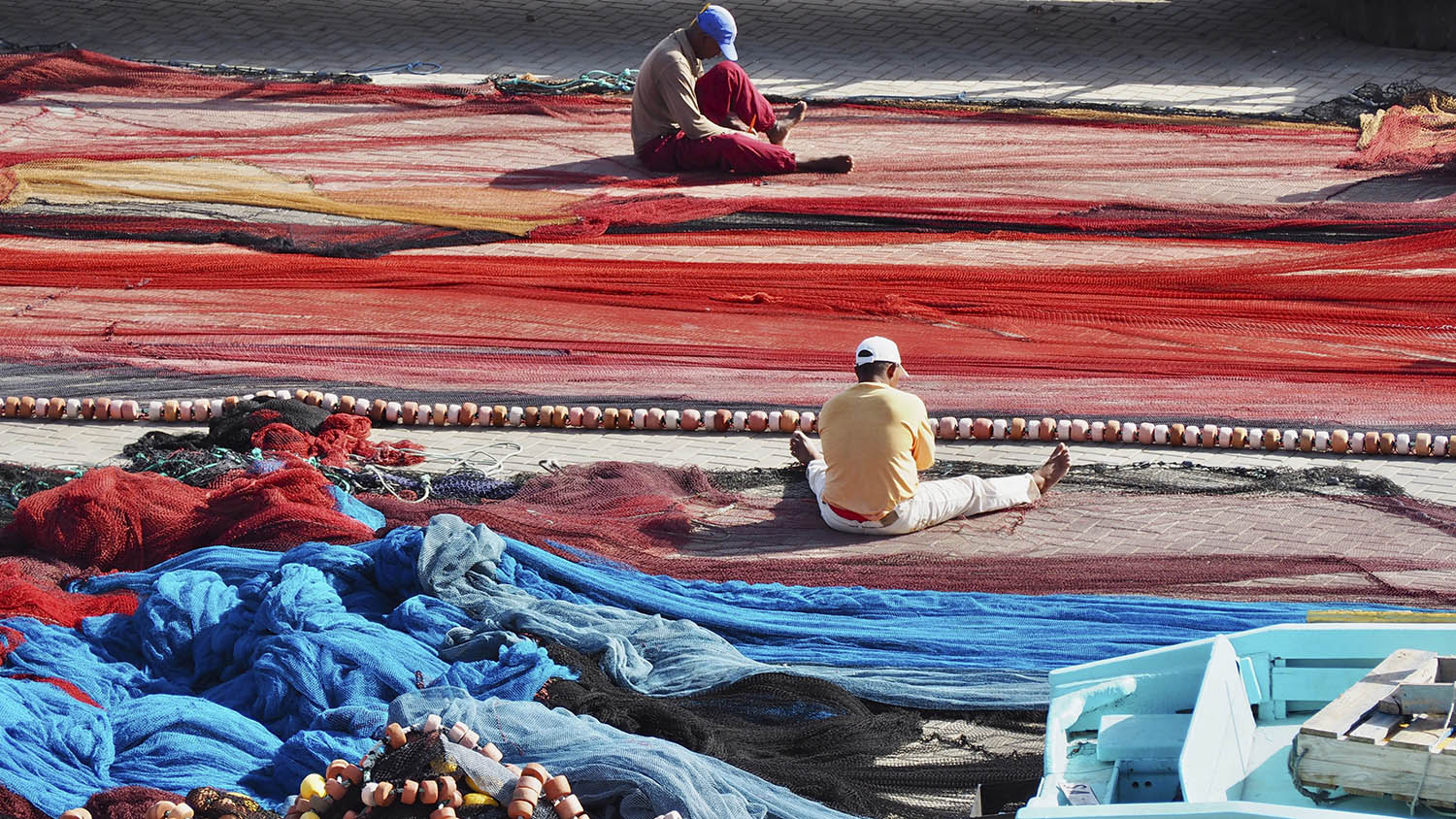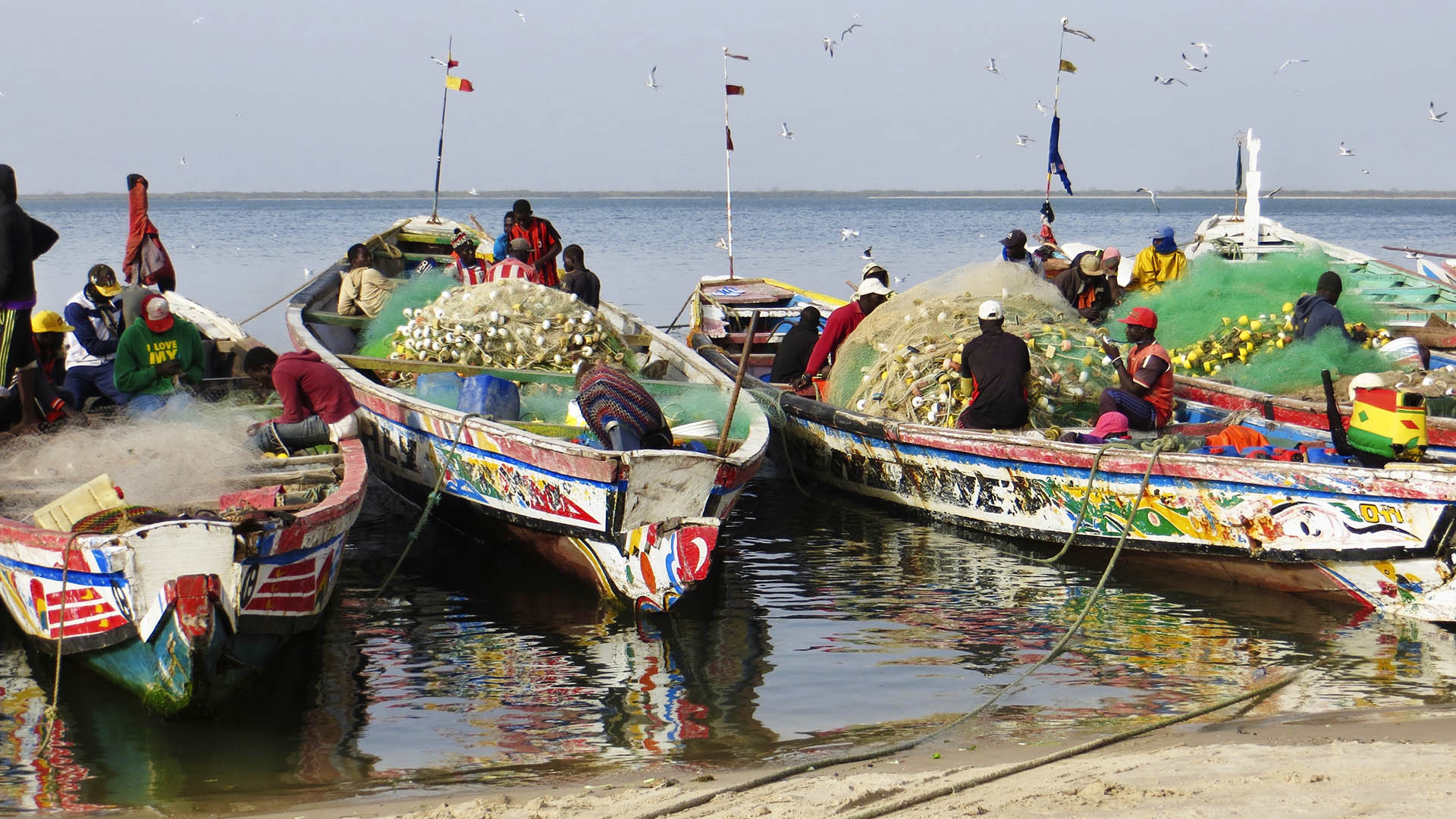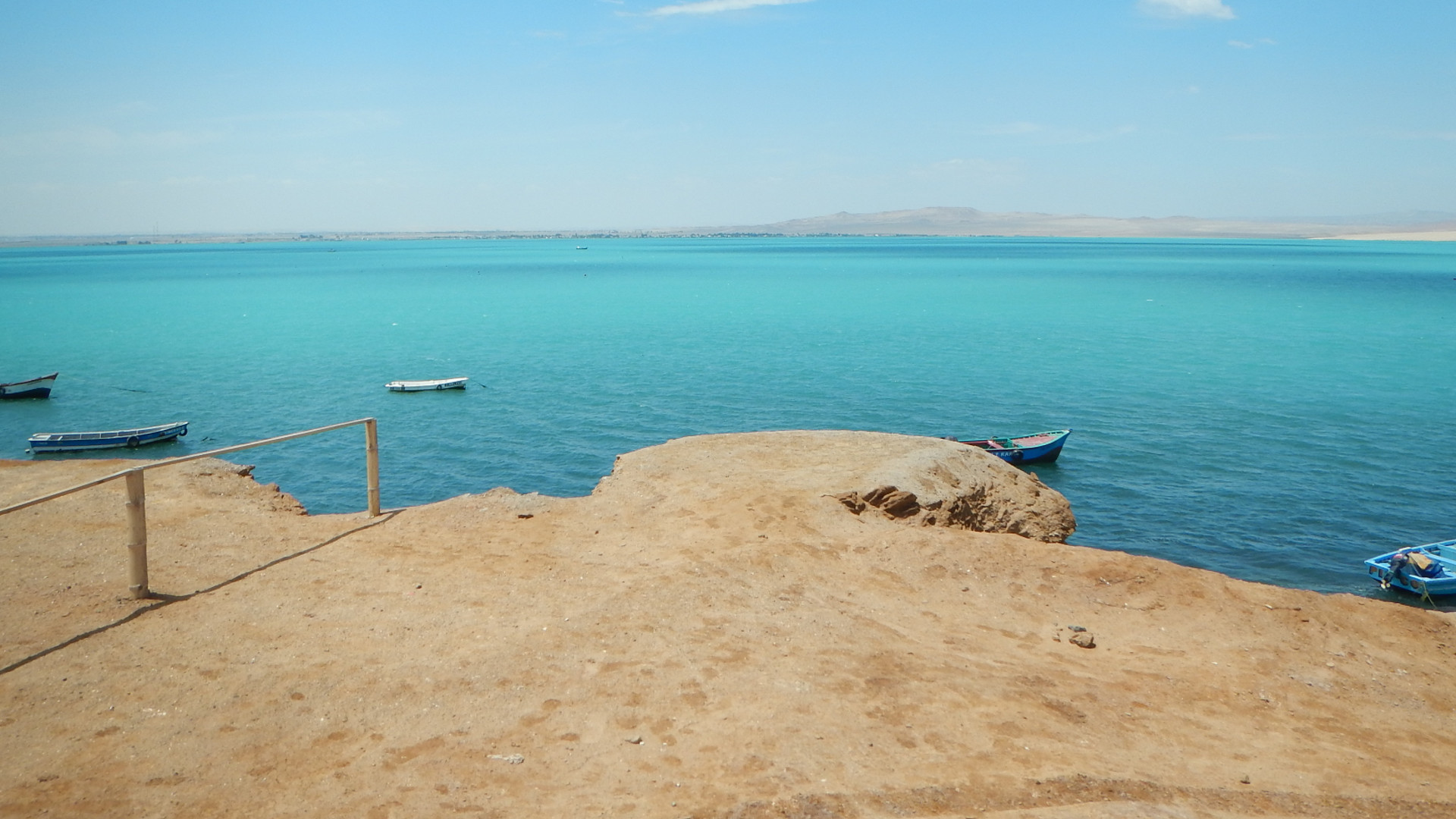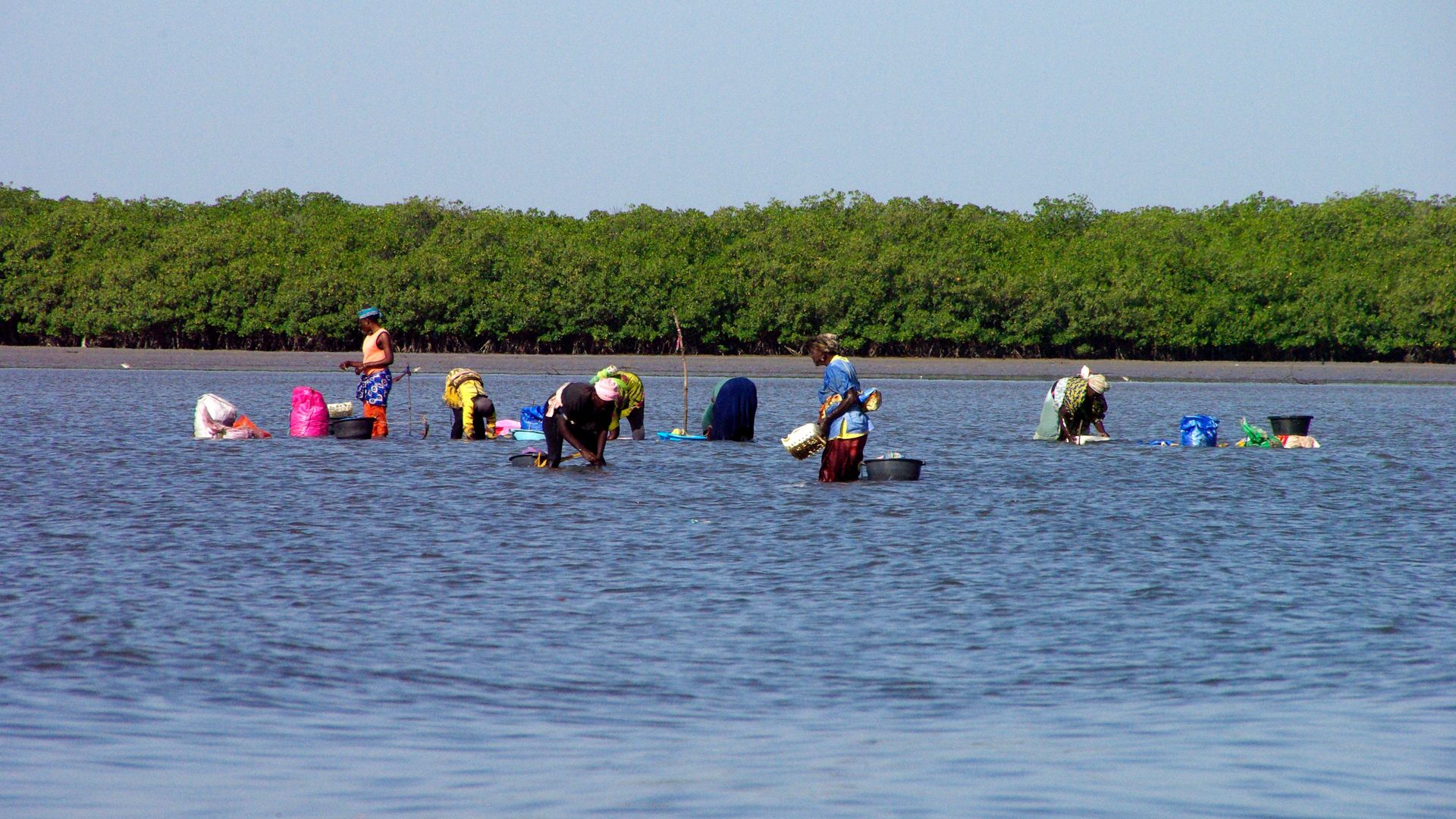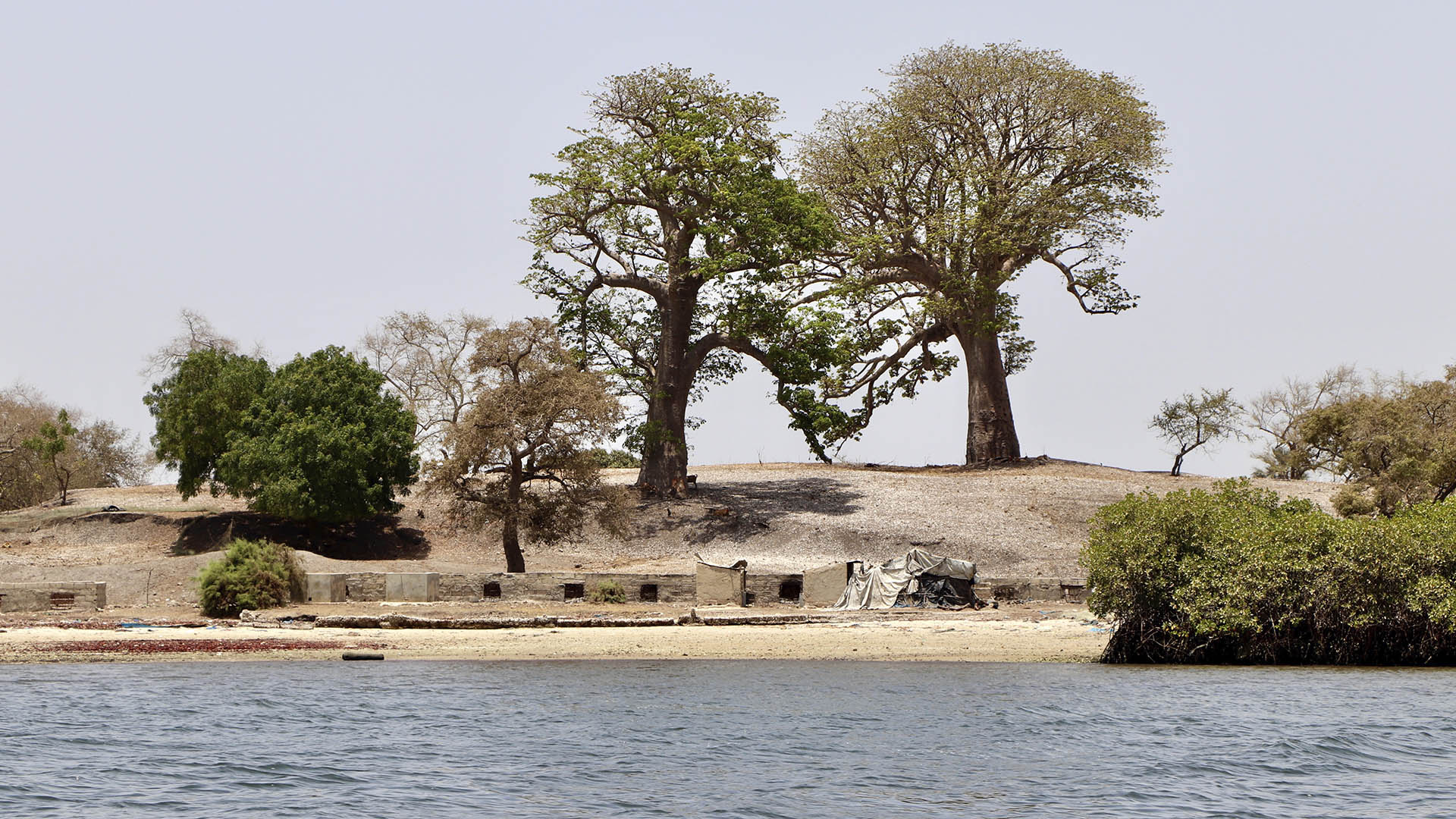Copyright : Laboratoire LEMAR- 2018
The West African region, and in particular the southern coast of Senegal, is one of the most productive fisheries in the world, due to favourable hydro-climatic conditions, supported in particular by upwelling that enriches coastal waters. These conditions favour in particular the artisanal fishing of small pelagic fish (e.g. Sardinella). The Petite-Côte, located between the south of Dakar and the Gambia estuary, is thus an important fishing area, both for the activity of Senegalese artisanal fishermen and for the country’s food security. At the same time, shellfish fishing activity (ark, mangrove oyster, etc.) in West African coastal ecosystems plays a crucial role for human communities, for their subsistence and as a source of protein. In Senegal’s Sine-Saloum delta, this activity is multi-millennial and is an integral part of the culture and traditions of local populations, particularly those of women’s communities. However, in the face of increasing fishing pressure, mangrove forest degradation and climate change-related disturbances (reduced rainfall), there is a significant degradation of the ecosystems of the Saloum Delta, which has a significant impact on the populations of exploited species and thus on the sustainability of fishing activities.
It is in this context that LEMAR has been developing research projects for many years to characterize the interaction between environmental variability and the dynamics of coastal and coastal fish resources. The objective of this research is to improve our knowledge of ecosystem functioning and environment-resource interactions in order to support the implementation of appropriate management measures, within the framework of an ecosystem-based approach to marine environmental management and to meet the need for sustainable development of fishing activities. This need appears to be reinforced in the context of global change, which is subjecting the marine environment to various forms of stress from natural or anthropogenic origin.
The SOLAB ANR project thus aims to study, by combining observation and modelling, the dynamics of the South Senegalese upwelling system and the consequences for fisheries resources (i.e. small pelagics and benthic resources). In parallel, the UPWELLING collaborative research action aims to study the interactions between upwellings and bivalve species exploited in coastal bays (in West Africa, Peru and Mexico), through the implementation of observations, ecophysiology experiments and modelling. The ark (Senilia senilis) is the target species in Senegal.
Senegal and Cabo Verde are also hosting countries for the H2020 Research and Innovation Staff Exchange (RISE) project PADDLE.

